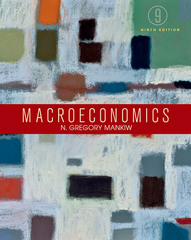Question
Macro cost/benefit analysis The dollar became the official unit of currency for the United States in 1792. For 200 years the dollar reigned supreme as
Macro cost/benefit analysis
The dollar became the official unit of currency for the United States in 1792. For 200 years the dollar reigned supreme as the preferred form of payment for goods and services. Debit cards entered the market in the mid 1970's, but didn't find widespread use until the mid-1990's. The popularity of electronic fund transfers has increased steadily ever since. Last year only 18% of all reported transactions were made in cash. Since most cash transactions are small, they only account for 12% of all spending in the United States each year. Recently, some people have been asking if we really need cash anymore.
Carefully read the information below, and then do this with the data. (1) Make two columns (one for costs and the other for benefits) and place each piece of information in the correct column.
So would these be either benefits or costs based on the data, make sure to do all 13, don't skip any :
1. Several studies suggest that eliminating cash would initially reduce crime both by eliminating attempts to steal it and by making it harder to pay for criminal activity.
2. Clearly, jobs would be lost at the Bureau of Printing and Engraving (where all our money is printed every year).
3. However, it is estimated that the US could save 956 million per year if we no longer print new money.
4. Currently, over 8 million households in the US do not have bank accounts. Without a bank account, there would be no way for them to pay for goods and services.
5. There would be a record of all transactions which would help some people keep better track of their money.
6. Consumer privacy groups are worried that when you pay digitally, you always leave a digital footprint, and this footprint is easily monitored by financial institutions and the government.
7. Businesses would save lots of time and money if they no longer have to handle cash (small and medium sized businesses alone could save over 10 billion per year on cash handling).
8. Of course, businesses would pay more in debit and credit card fees.
9. Using electronic money will make currency exchanges easier internationally (everything is handled automatically through the use of the card).
10. Most people tend to manage their cash more carefully than they do when they use debit cards, this may lead to overspending and more consumer debt. "People generally tend to buy more and tip more when they use their plastic than with cash," says Matt Schulz, the chief credit analyst at Lending Tree.
11. Anytime there is a problem with our computer networks (or power outages), you may be unable to make purchases.
12. It should lead to more taxes collected as it will be more difficult to hide monetary transactions (for both consumers and producers).
13. This might lead to more people using cryptocurrencies (that we have no control over) to protect their privacy and, ironically, avoid taxes.
Step by Step Solution
There are 3 Steps involved in it
Step: 1

Get Instant Access to Expert-Tailored Solutions
See step-by-step solutions with expert insights and AI powered tools for academic success
Step: 2

Step: 3

Ace Your Homework with AI
Get the answers you need in no time with our AI-driven, step-by-step assistance
Get Started


